I may have mentioned it before; Brachypelma is my favorite genus of tarantulas. They have everything going for them. They are long-lived, have amazing colors and for the most part, don’t have an aggressive bone in their body. Brachypelma albiceps is also one of my favorites, as it seems to be the odd man out when it comes to coloration.
Recently there has been a lot of work in the Brachypelma family, with seven Brachypelma species being moved to a new genus, Tlilocatl (kahlenbergi, sabulosum, albopilosum, verdezi, schroederi, epicureanum, and vagans). Eight species (emilia, klaasi, albiceps, hamorii, smithi, boehmei, baumgarteni and auratum) remained in the genus Brachypelma.
I first became aware of albiceps, discovered in 1903, when it went under the species name ruhnaui. In fact, the first specimen I received was sold as Brachypelmides ruhnaui. This species is the only Brachypelma that does not feature orange banding on the legs. The overall color is velvet black with a golden-yellow carapace and red hairs on the abdomen. This species was put into the Brachypelma genus in August of 2018.
This beautiful tarantula is endemic to Mexico and found in southern Mexico State, Morelos State, northern and eastern Guerrero State and western Puebla state. It is readily available as captive bred specimens from most dealers and are very reasonably priced.
In my experience, they are very docile and not as nervous as other Brachypelmas. When I open their enclosure for feeding, they never run into their hides and rarely flick their hairs. Mine also very rarely use their hides, making them excellent display animals. Their growth rate is slightly faster than most members of this genus and they are long-lived. Females can live 18-20 years with males living 4-5 years.
I cannot recommend this species enough and every collection should have at least one. You cannot go wrong with such a beautiful tarantula with a winning personality and long life.
~David Albaugh

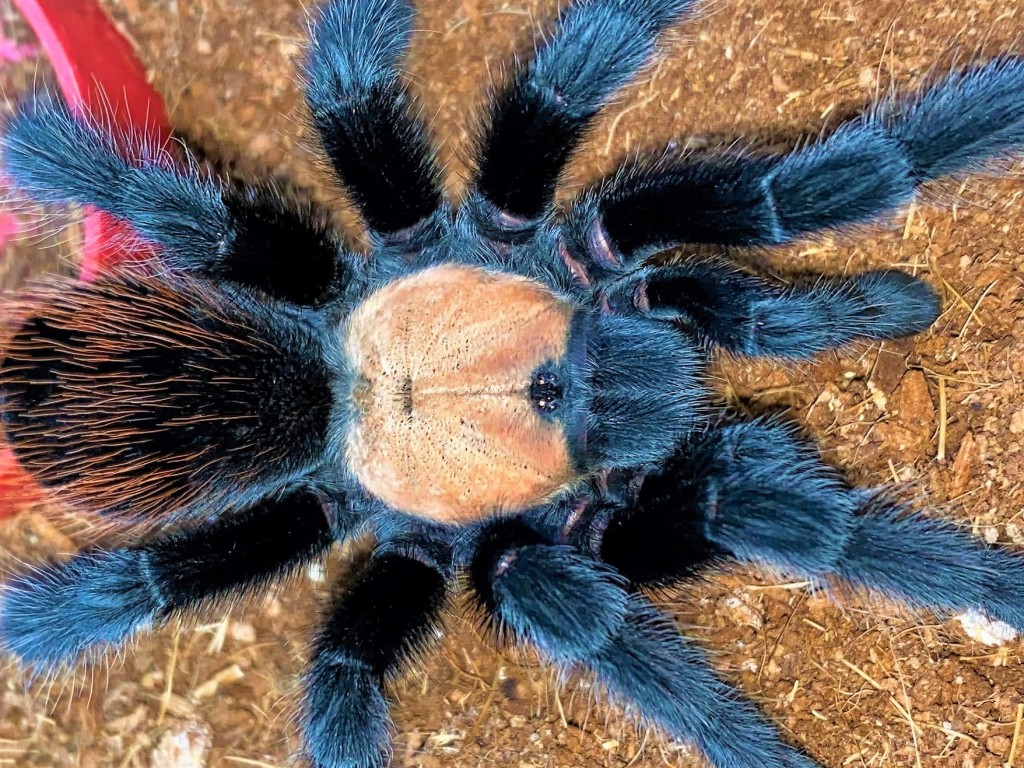
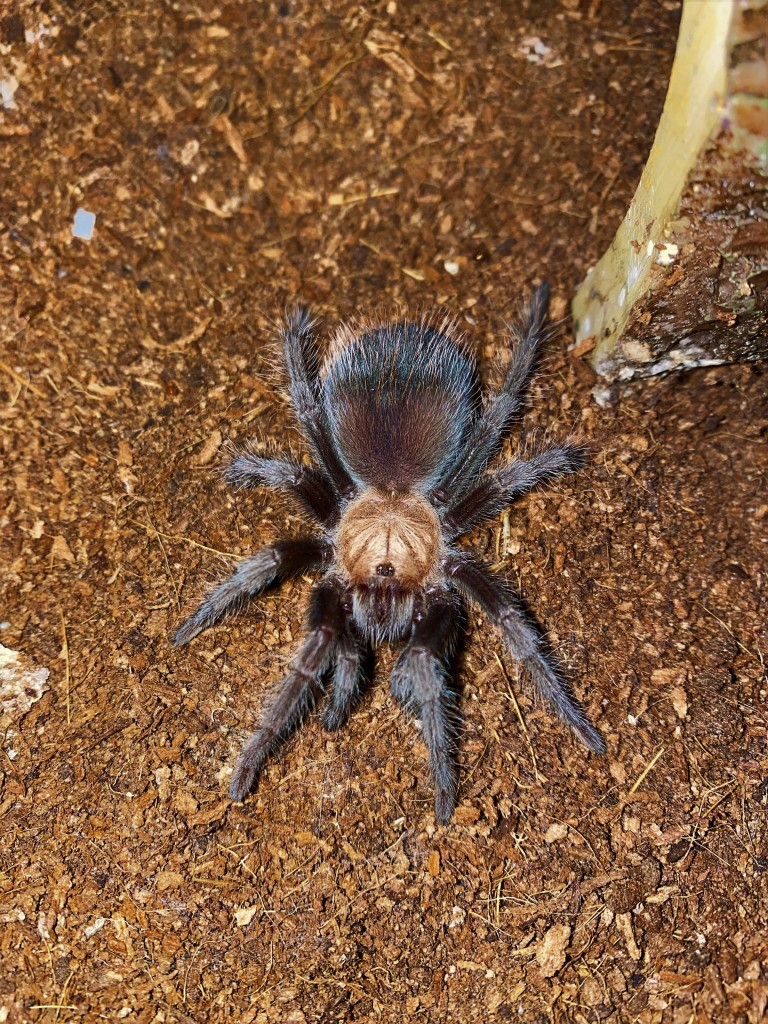
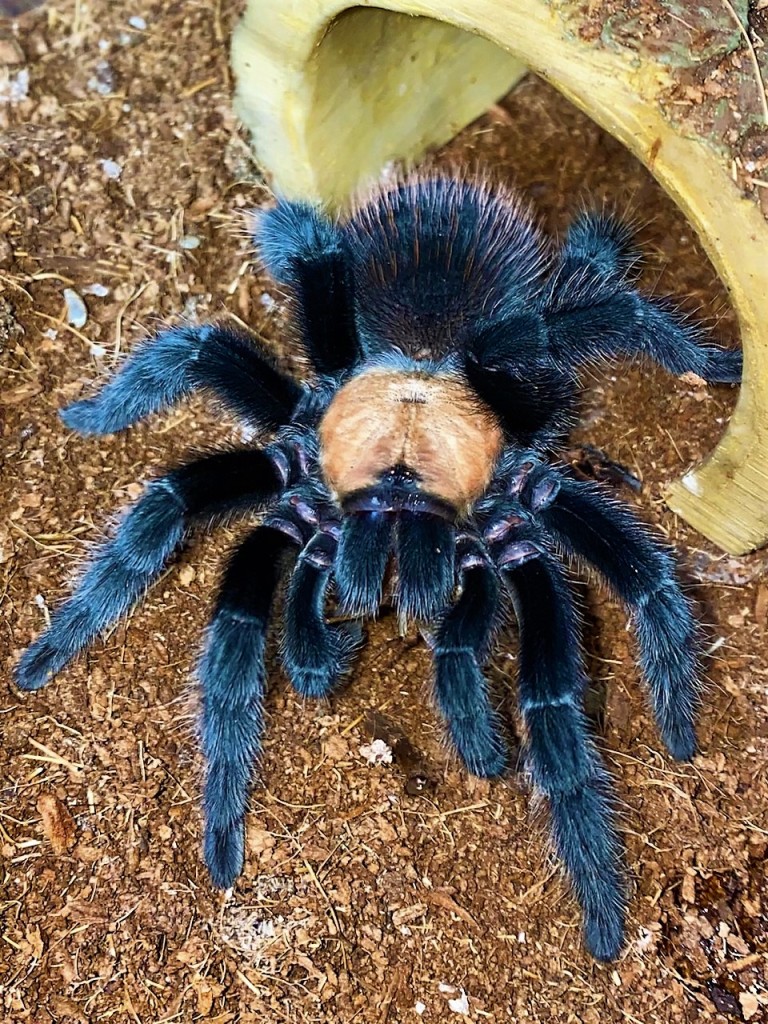
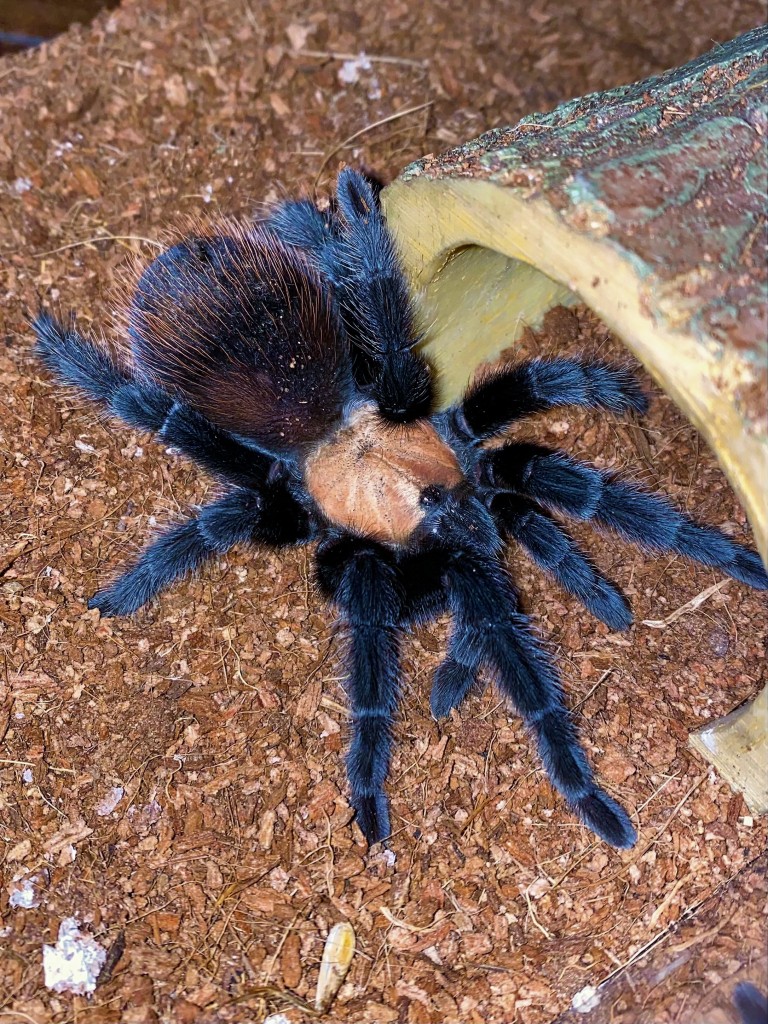
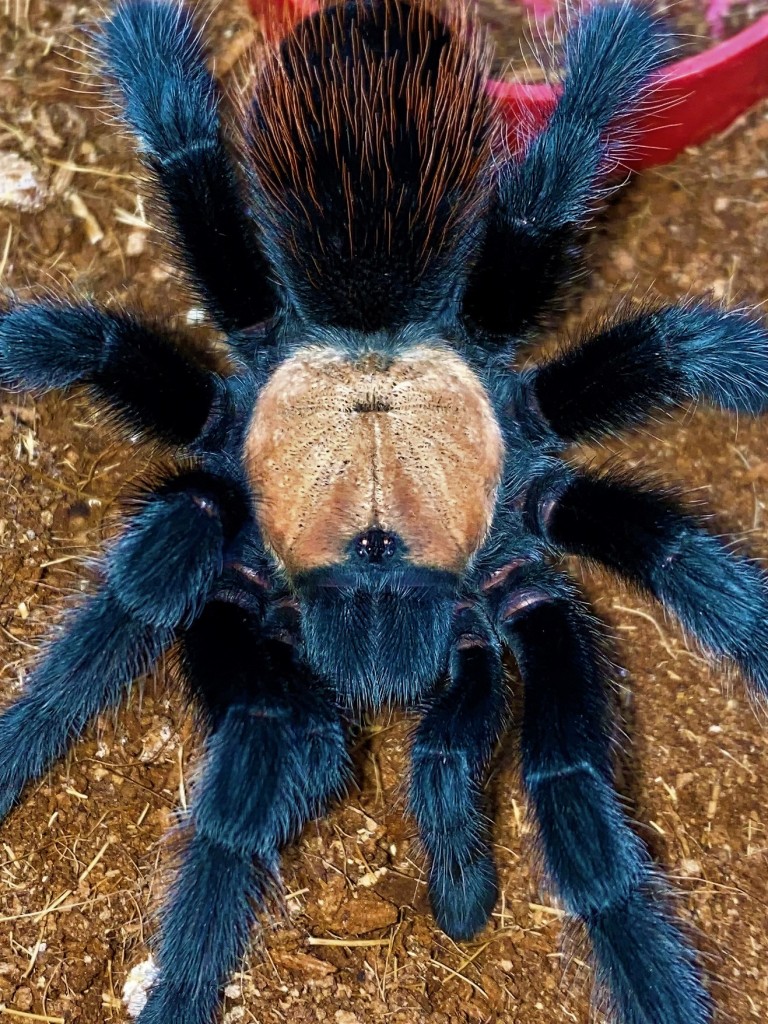
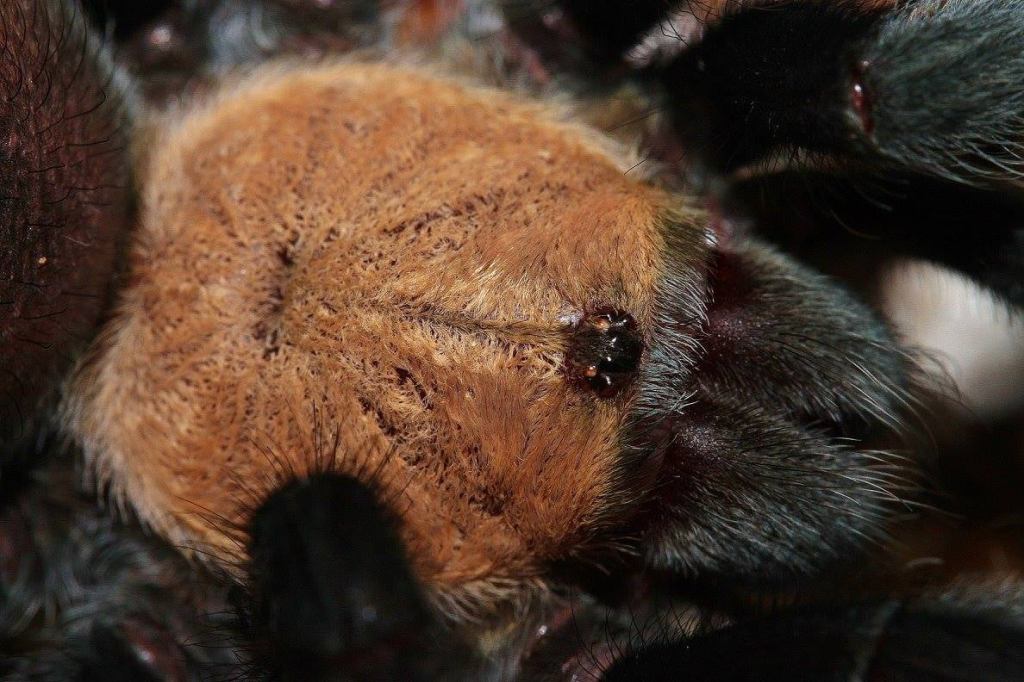



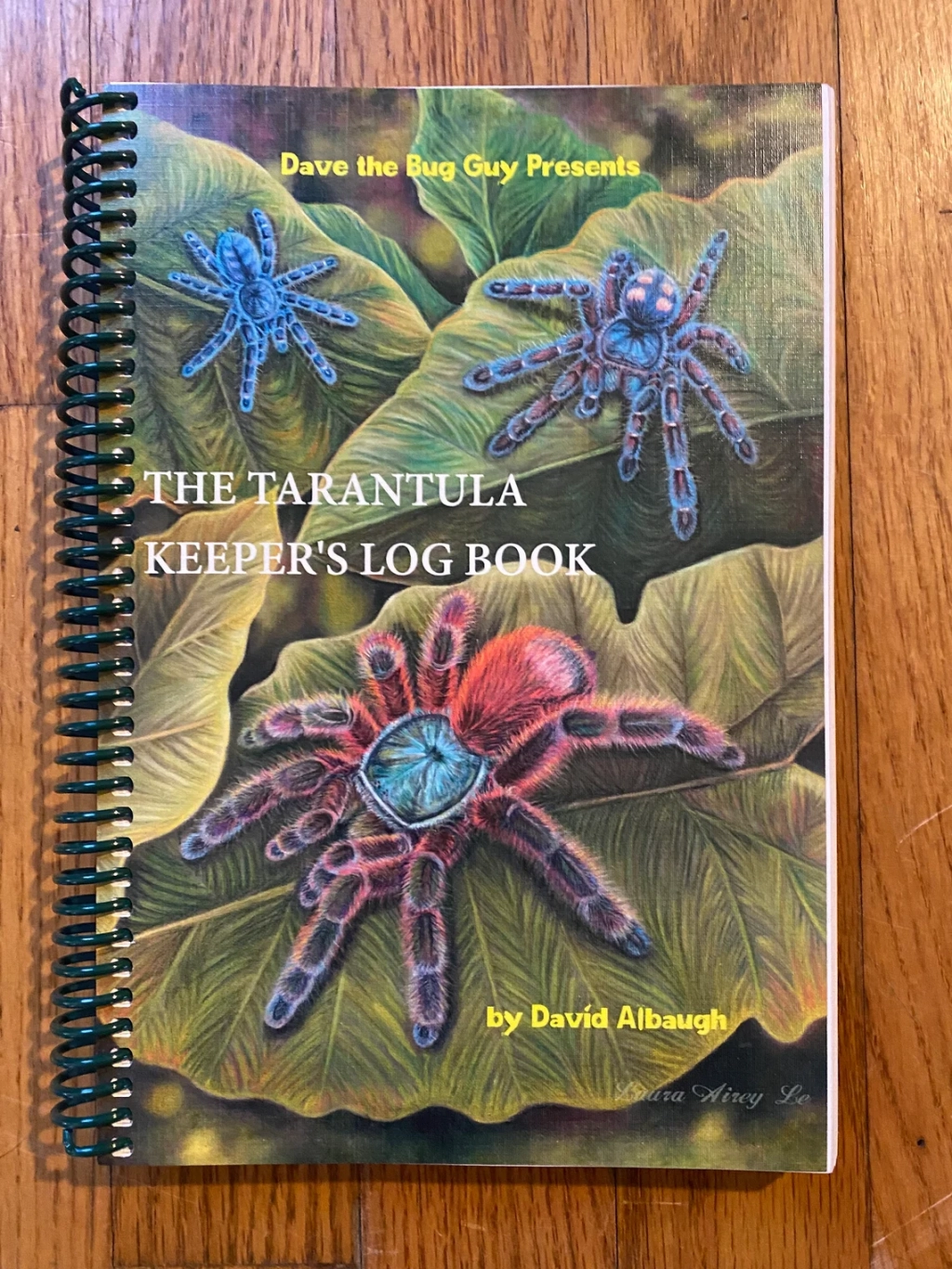
Leave a comment